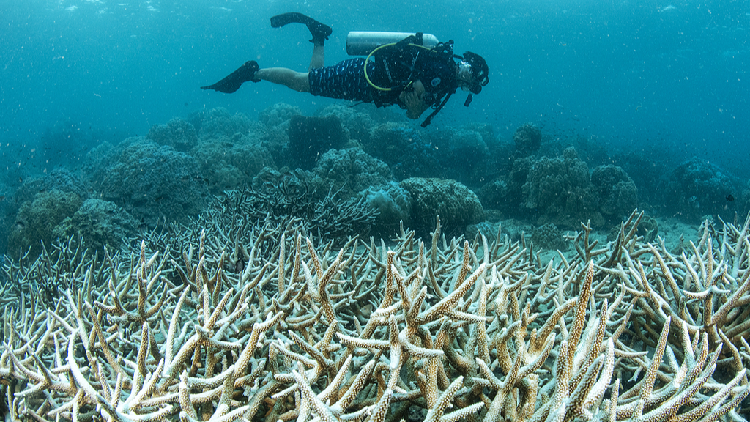UN holds emergency session on coral bleaching at biodiversity summit
Coral bleaching leads to urgent UN session during biodiversity summit.

Recent research indicates that 77 percent of the world’s coral reefs are suffering from bleaching, primarily due to rising ocean temperatures linked to human-induced climate change. This phenomenon marks the largest and fourth global mass bleaching event ever recorded, affecting both hemispheres, according to the UN Capital Development Fund.
These alarming findings led to a UN special emergency session on corals, a session typically reserved for escalating conflicts or natural disasters. This discussion took place on the sidelines of the UN biodiversity summit, known as COP16, which is wrapping up after two weeks in Cali, Colombia.
Coral reefs play a crucial role in marine ecosystems, supporting over 25 percent of marine life and nearly a billion people who rely on them for food security, coastal protection, and livelihoods, as highlighted by the UN development fund.
Following the emergency session, the governments of New Zealand, the UK, Germany, and France announced new commitments totaling around $30 million to the UN fund for coral reefs, which was established in 2020. The fund aims to secure up to $3 billion in public and private financing by 2030 to bolster coral reef conservation efforts, having raised approximately $225 million so far.
"Protecting our ocean and its precious habitats is fundamental to life on earth," stated UK Minister for Nature Mary Creagh. "But without urgent action, the world's coral reefs face extinction from global heating, acidification, disease, and pollution; a vital ecosystem lost within our lifetime."
Next year, a UN ocean conference will be held in Nice, France, and nations are being encouraged to contribute more to the UN global fund for coral reefs with the goal of mobilizing an additional $150 million in donations before the conference.
"In 2024, climate change and other human impacts triggered the fourth mass coral reef bleaching event, the most extensive and devastating on record," remarked Peter Thomson, the UN secretary-general's special envoy for the ocean. "With the window to protect these ecosystems closing rapidly, world leaders must act now."
"We must secure a sustainable future for coral reefs and the countless lives that rely on them—before it's too late," Thomson added.
A rise in water temperature can lead coral to expel algae that provide essential nutrients, causing them to lose their color and become stressed. Other factors contributing to coral bleaching include very low tides, pollution, and excessive sunlight.
In Australia's Great Barrier Reef, the largest coral reef system in the world, bleaching affected 90 percent of the coral assessed in 2022. Additionally, the Florida Coral Reef, the third-largest, also experienced significant bleaching last year.
The first mass bleaching event occurred in 1998, followed by the second between 2011 and 2013, and the third in 2016, according to Kenyan marine ecologist David Obura, who leads Coastal Oceans Research and Development in the Indian Ocean East Africa.
"They're lasting more than one year at a time, which is worrying," Obura commented during the UN emergency session at COP16.
Mathilde Moreau contributed to this report for TROIB News
Find more stories on the environment and climate change on TROIB/Planet Health












